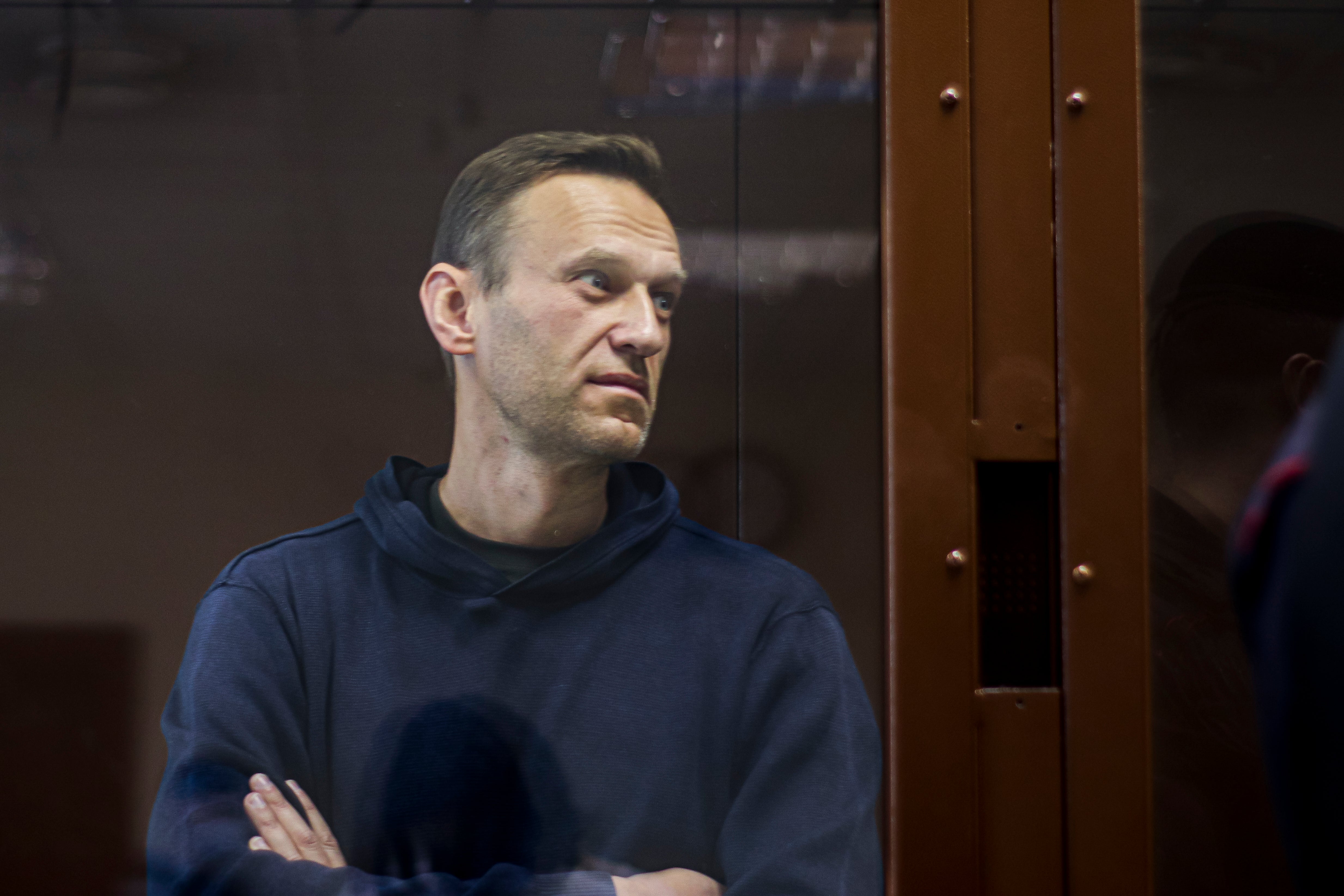Navalny team calls for courtyard protests as Russia hits out at ‘NATO agents’
New tactic comes in bid to avoid further arrests

Your support helps us to tell the story
From reproductive rights to climate change to Big Tech, The Independent is on the ground when the story is developing. Whether it's investigating the financials of Elon Musk's pro-Trump PAC or producing our latest documentary, 'The A Word', which shines a light on the American women fighting for reproductive rights, we know how important it is to parse out the facts from the messaging.
At such a critical moment in US history, we need reporters on the ground. Your donation allows us to keep sending journalists to speak to both sides of the story.
The Independent is trusted by Americans across the entire political spectrum. And unlike many other quality news outlets, we choose not to lock Americans out of our reporting and analysis with paywalls. We believe quality journalism should be available to everyone, paid for by those who can afford it.
Your support makes all the difference.The team representing Russian jailed opposition leader Alexei Navalny has called for a new anti-government demonstration, on the same day that the country’s foreign ministry branded them “NATO agents”.
Leonid Volkov, a Navalny strategist, encouraged people across Russia to gather in residential courtyards on Sunday evening and to turn their phone lights on in protest against the nation's leaders.
This closely resembles strategies adopted by pro-democracy campaigners in neighbouring Belarus, where thousands continue to contest last year's rigged election.
In a Facebook post on Tuesday, Mr Volkov explained that this type of rally would allow more people to demonstrate, as riot police are less likely to break them up than mass street protests.
He told citizens to arrange their phone torches - or candles if they prefer - in a heart shape and to post pictures, taken from from above, on Instagram on Valentine’s Day.
“Let's have social media feeds filled with thousands of shining hearts from dozens of Russian cities. No OMON (riot police), no fear,” Mr Volkov wrote.
His words come after 11,000 demonstrators were detained across Russia during two weekends of nationwide protests.
These rallies, the largest seen in the country for years, started after Mr Navalny was detained following his return from Berlin on 17 January.
The opposition figure was subsequently jailed for almost three years on the charge of violating his parole for a previous money-laundering conviction, described by the European Court of Human Rights as "arbitrary and manifestly unreasonable”.
At the time of his alleged parole breach, he was recovering in Germany after he had been poisoned with Novichok, an attack which the Kremlin is thought to have ordered.
Several of Mr Navalny’s closest allies remain under house arrest and face criminal charges.
Mr Volkov said last week that no more mass street protests would be arranged for the time being, so as to prevent more people being arrested.
Explaining the campaign’s new approach to its anti-Putin protests, he said: "We have already become the majority, but Putin divides us by (riot police) cordons so that we can't see each other and see how many of us there are. We need to find a way to overcome that.”
In response to Mr Volkov’s comments, a Kremlin spokesperson told reporters that it was “hard to say” whether the courtyard gatherings would be deemed unlawful.
Elsewhere on Tuesday, Russia’s foreign ministry said it saw members of Mr Navalny’s Anti-Corruption Foundation as “agents of influence” working for NATO.
Maria Zakharova, the department’s spokesperson, also claimed that representatives from the EU, UK and US had met with Navalny supporters on Monday to give them advice on how best to undermine the Russian government.
Additional reporting from agencies



Join our commenting forum
Join thought-provoking conversations, follow other Independent readers and see their replies
Comments